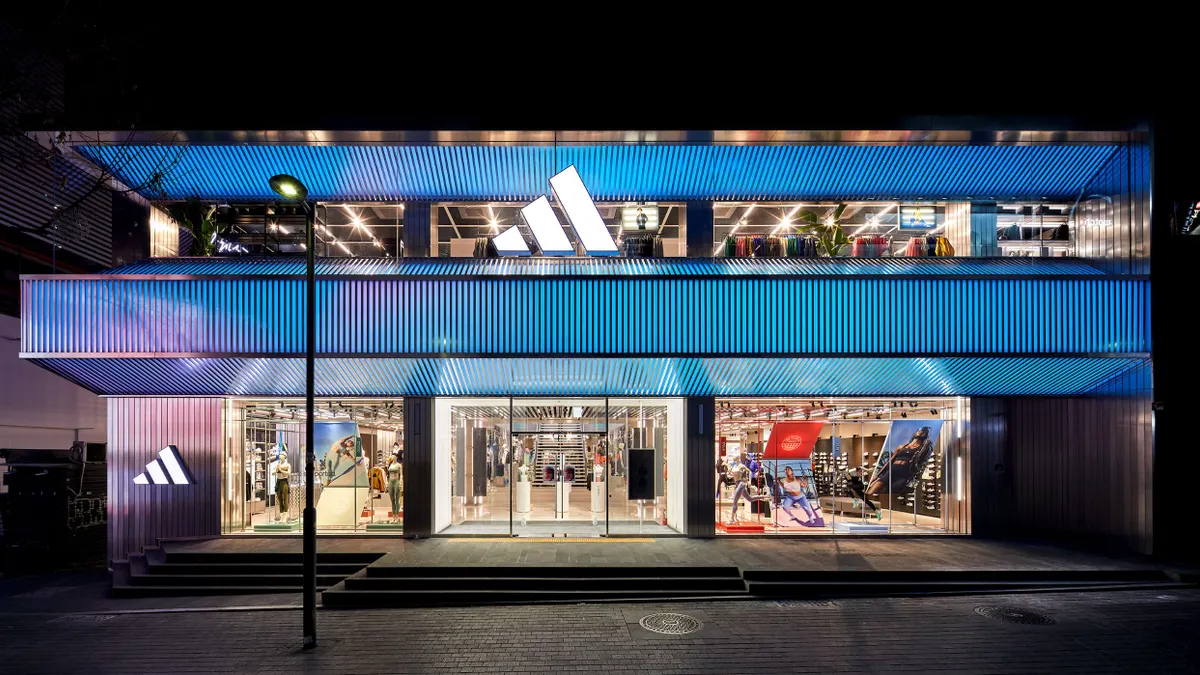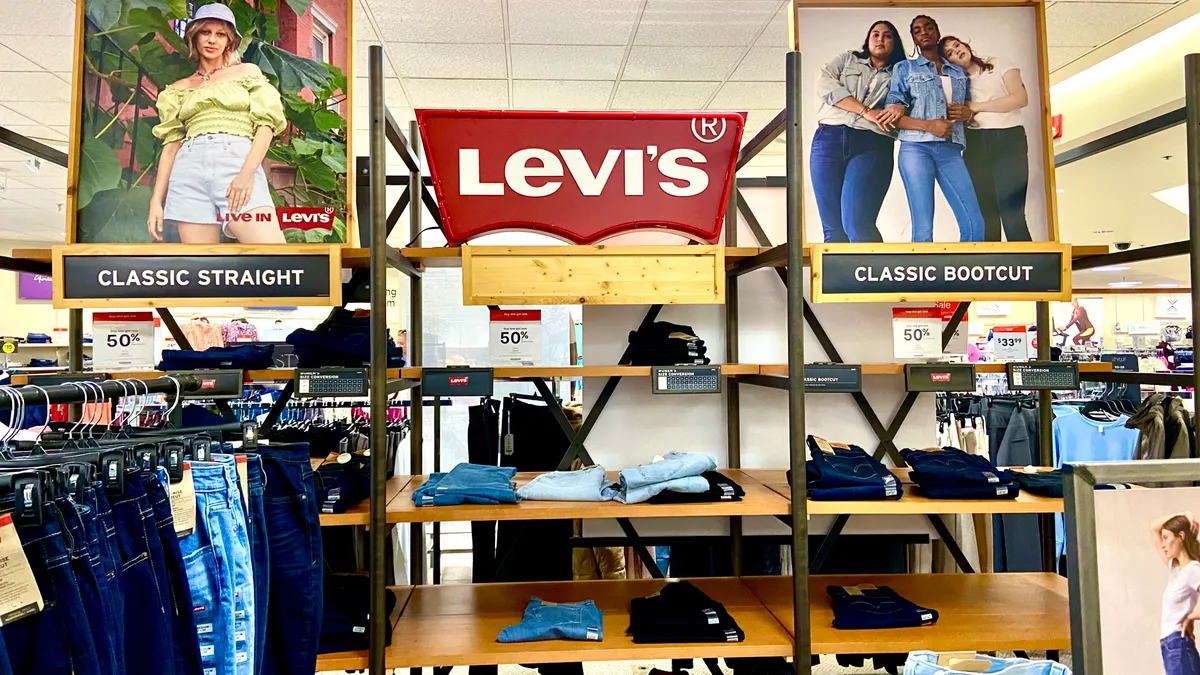For years, department stores like Macy’s and Marshall Field’s were what Columbia University retail scholar Mark Cohen calls "emporiums filled with endless wonderment and tremendous assortments." They graced the downtowns of U.S. cities with grand 19th Century architecture and amenities that were then state-of-the-art, like lighting, elevators and dressing rooms.
But wonderment has been replaced with workaday one-story buildings in many places, anchoring shopping malls in a sea of parking lots. Macy’s had a large part in that, gobbling up local and regional stalwarts to fuel its own growth, all the while ceding market share to specialty retailers in electronics, home goods and, these days, beauty. The magical potential of the department store that was made indelible by the 1947 movie "Miracle on 34th Street" — the story of a cynical little girl who found joy in life thanks to a Macy's Santa Claus — has largely been replaced by racks and racks of mostly apparel, sales of which have been driven mostly by discounts.
And then there was the problem of too many stores. Macy’s is almost done correcting its over-acquisition of locations, likely shuttering the last of the 100 slated for closure in coming months, but that hardly fixes everything. With off-price retailers drawing away customers with their own treasure hunts, top labels departing to protect their brand equity and e-commerce upending how people shop, few have envisioned anything close to a department store comeback.
Still, thanks to a new partnership with retail-experience startup b8ta and the acquisition of retail-concept Story, Macy's may just have a chance.
"Win, lose or draw, these two deals by a large traditional incumbent like Macy's mark a watershed moment in the history of retail and show enormous courage on the part of Jeff Gennette and the team at Macy’s," retail futurist and author Doug Stephens told Retail Dive in an email. Stephens discussed both companies in his recent book, "Reengineering Retail: The Future of Selling in a Post-Digital World" and, in recent months, with Macy's executives.
The retail experience according to b8ta
The former Nest employees who started b8ta two years ago, including CEO Vibhu Norby, believe companies need physical space to allow customers to engage with their products, something that is particularly true of the electronic gadgetry that has streamed into its stores from various brands and startups in the past two years.
The company leverages good store design and data to showcase the goods, many from little-known makers. "We work with a lot of companies who wouldn’t be able to sell inside of a typical store and sometimes not even possible for them to sell on Amazon," he told Cowen analyst Oliver Chen in a 2017 video emailed to Retail Dive. And sometimes it's "a battle between opening a new store of your own or not opening a store."
Macy's, which also has taken a minority stake in the company, will employ b8ta's software platform to scale its new pop-up concept, The Market@Macy's. Over the next year, The Market@Macy's will test new size format spaces powered by that technology and will expand the size of some existing pilot locations.
B8ta's premise notwithstanding, it's not really about the products per se, so much as the experience, and that's exactly what's so right about this move, experts say. "Customers care more about experiences than products," Brendan Witcher, Forrester principal analyst of digital business strategy, told Retail Dive. "Our own research shows that customers will abandon a retailer, even if that retailer has every product the customer wants, if the experience is better or adds more value somewhere else."
Witcher and others are quick to point out that, despite the growth of and attention to e-commerce, the vast majority of retail sales still ring up in stores. Yet shopping in them can be a draining experience.
"A third of all Americans literally feel nothing when they go to a store and nearly a third feel anxiety. So nearly 66% of your customers either feel nothing or feel anxiety," according to Maya Mikhailov, co-founder and chief marketing officer of GPShopper, who called Macy's tie-up with b8ta a smart evolution in its already sophisticated tech operations. "It seems that Macy’s is investing in experiences," she said.
Of course, for a former "emporium of tremendous assortments," it's not just about electronics (though Macy's has moved to bring back more such sales, especially at the holidays). The Market@Macy's is a pop-up effort already underway in 10 U.S. cities that ditched old concession rules to provide flexibility to new and established brands in a variety of categories. When it launched in February the project immediately drew comparisons to New York City's Story, which Macy's acquired last month for an undisclosed amount. Macy's brought along talent in the process, tapping Story founder and CEO Rachel Shechtman as its new "brand experience officer."
The tech
What b8ta offers, and what Macy's has just signed onto, is made possible by advancements in technology that allow a new paradigm.
"What you're seeing is a proliferation of technology around physical in-store experience analytics and point-of-sales that are all converging with the customer's mobile device," Mikhailov said in an interview, noting similarities between b8ta and e-commerce marketplace and tech solutions platform Farfetch. "They're saying physical retail needs to be driven on data and experience. The story for the past few years was 'collect the data.' Now retailers are pivoting to analytics even in retail environments and making meaningful actions around them."
Witcher takes a dim view of retailers that get distracted by the "latest shiny object" in technology — the way some retailers have grasped at artificial intelligence is sometimes an example of that. But b8ta and companies like it that focus on creating customer journeys for the purpose of collecting data offer more than just whiz-bang tech, he says.
"They recognize that the ability to use data — when it is accurate, consistent and can be tied to an individual customer — is a powerful competitive weapon," he said. "What better way for Macy's to learn about a number of important areas in retail right now? Physical stores as experience centers, consumer preferences for high-tech IoT devices and operating a retail store as a data-collection machine. B8ta really has all the right parts to address the future of retail."
Long live the department store
Macy's emerging willingness to embrace this new state of the art in retail could go far in redefining it, and maybe even the department store model more broadly.
Stephens had argued for models like b8ta's and Story's because he believed Macy's could create a memorable experience for customers while boosting revenues, without taking on inventory, he said he told executives. It involves major shifts in how a retailer evaluates success.
"Once Macy's began to free itself from the tyranny of sales and profit per square foot of floor space and instead began to create and measure 'experiences per square foot,' their stores could become the most powerful media channel they have at their disposal, driving sales and customer advocacy across channels," he told them.
But technology could just as easily fuel defeat, Stephens also warned in his email to Retail Dive. "These are early days and Macy’s is a huge ship to turn around," he said. "As much as I believe in the work that Rachel Shechtman at Story and Vibhu Norby and his team at b8ta have done, they alone cannot guarantee Macy’s success."
In fact, in many ways, the real work is just starting, and it does include maintaining a different mindset, according to Bahige El-Rayes, principal in A.T. Kearney’s consumer and retail practice.
"The acquisition is always the easy part," he said. "Successfully scaling is a different thing and few retailers have succeeded in doing that."






















